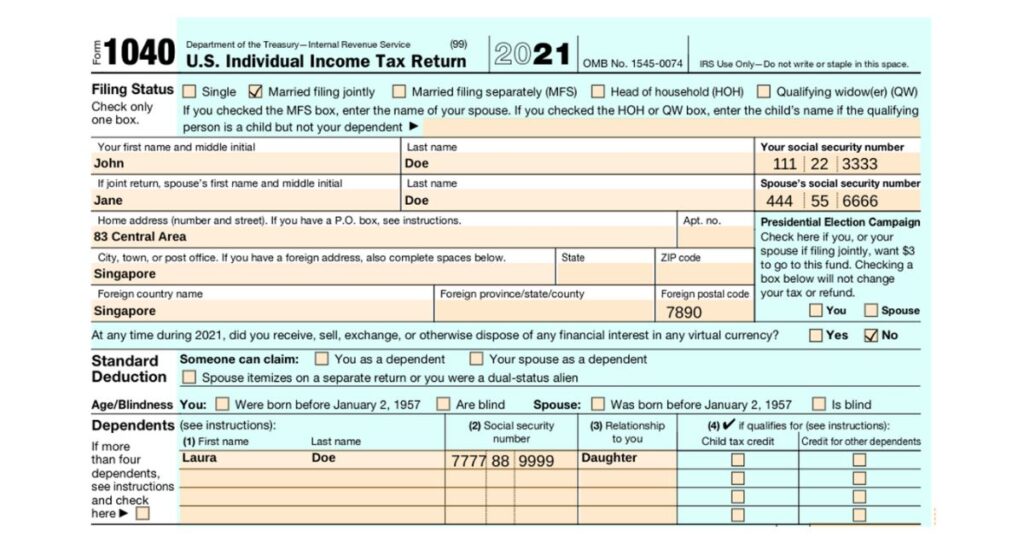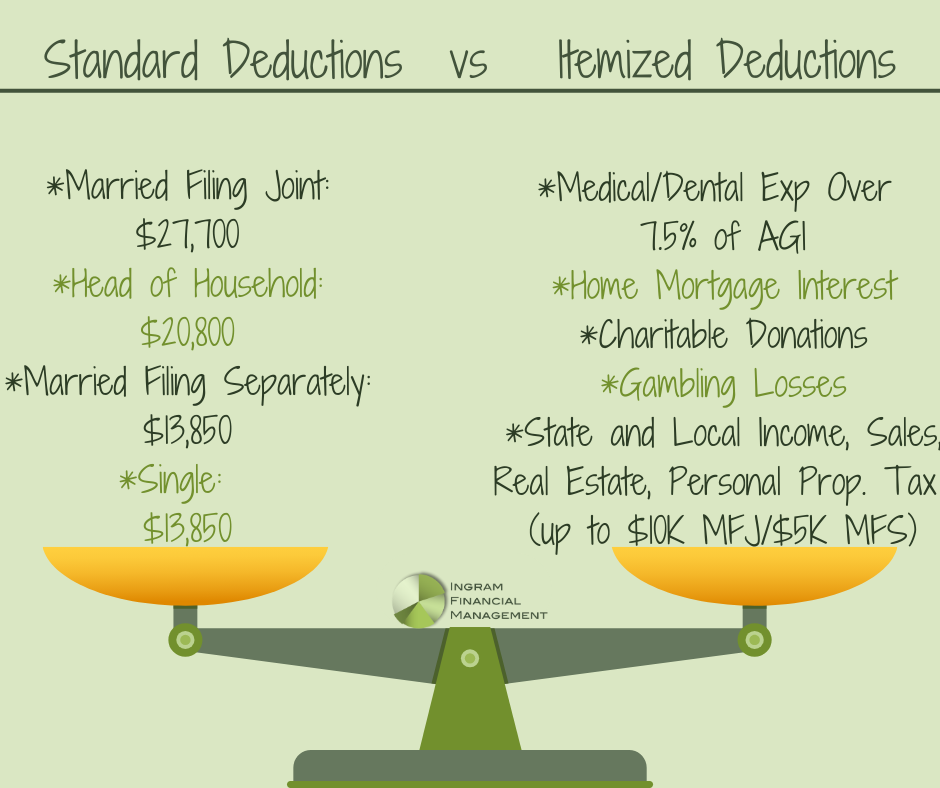Exploring the Foreign Earned Earnings Exemption and Just How It Connects to Your Typical Deduction
The Foreign Earned Revenue Exclusion (FEIE) provides a significant chance for migrants to reduce their U.S. tax obligation responsibility. Understanding the qualification needs and calculating foreign gained income is necessary. Nonetheless, this exclusion complicates the option between maximizing and declaring the typical reduction tax obligation advantages. Maneuvering through these detailed rules can bring about significant financial effects. What approaches can people utilize to enhance their tax obligation circumstance while staying compliant with IRS laws?
Recognizing the Foreign Earned Revenue Exclusion (FEIE)
Although numerous U.S. people functioning abroad may face complex tax obligation commitments, the Foreign Earned Revenue Exclusion (FEIE) provides significant relief by allowing qualified people to omit a portion of their foreign revenues from united state taxes. This stipulation is created to relieve the economic worry of double tax on earnings earned in foreign nations. By using the FEIE, qualified taxpayers can exclude approximately a defined restriction of international made income, which is readjusted annually for inflation. The exclusion applies just to income stemmed from employment or self-employment in an international nation and does not cover various other types of revenue, such as investment earnings. To take advantage of the FEIE, people must submit the appropriate tax return with the internal revenue service and ensure conformity with specific needs. Ultimately, the FEIE functions as a vital device for U.S. residents steering the complexities of worldwide taxes while living and working abroad.
Eligibility Demands for the FEIE
To get the Foreign Earned Earnings Exemption (FEIE), people have to satisfy specific requirements developed by the internal revenue service. First, they should have international gained income, which refers to salaries, incomes, or specialist fees received for services done in an international nation. Additionally, the taxpayer should either be a bona fide citizen of an international nation or fulfill the physical existence examination, which calls for investing a minimum of 330 full days in an international nation throughout a 12-month duration.
In addition, the taxpayer must submit Kind 2555 or Kind 2555-EZ to assert the exemption. It is also essential to note that the FEIE applies just to income earned while staying outside the United States; subsequently, any revenue from U.S. resources or for services done in the U.S. does not certify. Comprehending these eligibility requirements is necessary for individuals looking for to take advantage of the FEIE.
Determining Your Foreign Earned Earnings
Determining foreign earned revenue is crucial for people seeking to take advantage of the Foreign Earned Income Exemption - FEIE Standard Deduction. This procedure entails understanding the definition of foreign made revenue and the certain eligibility requirements that apply. Furthermore, various estimation approaches can be used to properly figure out the amount eligible for exemption
Interpretation of Foreign Earned Earnings
Foreign made revenue encompasses the settlement received by people for solutions executed in an international country. This income can consist of wages, wages, bonuses, and specialist fees made while working abroad. It is vital to note that international earned revenue is not limited to simply cash repayments; it can also include non-cash advantages, such as housing allocations or the value of meals given by an employer. To certify as foreign made revenue, the compensation needs to be derived from solutions performed in an international location, not from U.S. resources. Comprehending this interpretation is vital for individuals seeking to navigate the intricacies of tax obligation policies associated to gaining income overseas, especially when taking into consideration the Foreign Earned Income Exclusion.
Qualification Needs Discussed
Qualification for the Foreign Earned Revenue Exemption hinges on a number of crucial needs that individuals should fulfill to assure their income qualifies - FEIE Standard Deduction. To begin with, the specific must have foreign made revenue, which is revenue received for services carried out in an international nation. Furthermore, they must satisfy either the authentic house test or the physical existence test. The bona fide home examination requires individuals to be a citizen of an international nation for an uninterrupted duration that consists of a whole tax obligation year. Conversely, the physical presence test necessitates existing in an international nation for a minimum of 330 complete days throughout a 12-month period. Furthermore, taxpayers should file a valid income tax return and assert the exemption utilizing Type 2555
Computation Techniques Summary
When figuring out the quantity of foreign earned income eligible for exclusion, individuals need to take into consideration numerous estimation methods that accurately show their earnings. The most typical approaches include the Physical Existence Examination and the Bona Fide Residence Examination. The Physical Presence Test needs individuals to be physically existing in an international country for a minimum of 330 days within a twelve-month duration. Alternatively, the Bona Fide Residence Examination puts on those who develop an irreversible home in a foreign nation for a nonstop duration. Each technique has specific criteria that must be fulfilled, affecting the amount of income that can be omitted. Comprehending these calculation approaches is essential for making the most of the benefits of the Foreign Earned Income Exclusion and ensuring conformity with IRS laws.

The Role of the Criterion Deduction
The conventional deduction plays a necessary duty in individual tax obligation filings, providing taxpayers with a fixed reduction in their gross income. When integrated with the Foreign Earned Revenue Exemption, it can substantially influence the total tax obligation obligation for migrants. Comprehending exactly how these two elements communicate is important for optimizing tax advantages while living abroad.
Criterion Reduction Summary
Understanding the basic deduction is essential for taxpayers looking for to decrease their gross income. The basic deduction stands for a fixed dollar quantity that minimizes the earnings based on taxes, streamlining the filing process. It differs based on filing standing-- solitary, married filing collectively, wedded filing independently, or head of family. For numerous taxpayers, especially those without substantial itemized deductions, selecting the typical reduction may be useful. This reduction is adjusted each year for inflation, guaranteeing its significance over time. By making use of the conventional reduction, individuals can effectively reduce their tax obligation, making it a crucial part of tax preparation. Ultimately, recognition of the basic reduction empowers taxpayers to make enlightened decisions regarding their economic methods.
Communication With Foreign Exclusion
Taxpayers living abroad might take advantage of both the conventional reduction and the Foreign Earned Income Exemption (FEIE) The FEIE allows eligible people to omit a significant section of their international revenue from united state tax, while the basic reduction reduces taxable earnings for all taxpayers. Notably, the basic reduction can still use also when utilizing the FEIE. Nevertheless, taxpayers have to note that the FEIE does not impact the estimation of the basic deduction. Solitary filers can claim the common reduction amount no matter of their international income exclusion. This mix can bring about substantial tax financial savings, enabling migrants to minimize their overall tax obligation successfully while ensuring compliance with U.S. tax commitments.
Exactly How FEIE Impacts Your Typical Reduction
Steering the interaction between the Foreign Earned Earnings Exclusion (FEIE) and the basic deduction can be complex for migrants. The FEIE enables qualifying individuals to exclude a particular quantity of their international made income from U.S. taxes, which can substantially influence their general tax liability. Nonetheless, it is vital to keep Website in mind that declaring the FEIE may influence the capacity to use the conventional deduction.
Specifically, if a migrant elects to leave out foreign gained earnings, they can not declare the standard reduction for that tax year. Instead, they might be eligible for an international tax obligation debt, which can be helpful in specific scenarios. The choice to utilize the FEIE or the typical deduction calls for cautious consideration of private circumstances, as it can modify the tax landscape substantially. Comprehending these effects is important for migrants seeking to enhance their tax responsibilities while living abroad.
Strategies for Maximizing Your Tax Obligation Benefits
While navigating via the complexities of expatriate taxes, individuals can utilize numerous techniques to optimize their tax advantages. One effective technique involves enhancing the Foreign Earned Revenue Exemption (FEIE) by making certain that all certifying earnings is accurately reported. By prompt filing Kind 2555, expatriates can leave out a substantial portion of their earnings, minimizing their overall taxable amount.
In addition, people should consider their residency condition and just how it affects their eligibility for tax advantages. Leveraging available reductions, such as real estate expenses, can additionally boost tax savings. Engaging in tax obligation preparation throughout the year, as opposed to waiting till tax period, enables expatriates to make enlightened financial decisions that straighten with their tax strategy.
Last but not least, talking to a tax specialist knowledgeable in expatriate tax can provide personalized understandings, making sure conformity while maximizing offered benefits. Via these approaches, migrants can efficiently navigate the intricacies of their tax obligation responsibilities.
Common Mistakes to Stay Clear Of With FEIE and Reductions
Optimizing the benefits of the Foreign Earned Income Exemption (FEIE) needs careful focus to information to avoid usual risks that can weaken tax financial savings. One frequent blunder includes failing to fulfill the residency demands, which can result in incompetency from the exemption. Another usual error is incorrectly computing the qualified foreign gained income, leading to prospective over- or under-reporting. Taxpayers may additionally neglect the demand to file Kind 2555, vital for claiming the FEIE, or misunderstand the relationship in between the FEIE and the basic reduction. It's vital to keep in mind that while the FEIE can decrease taxed earnings, it does not influence the conventional reduction amount, which might cause complication. Finally, disregarding to maintain correct documentation, such as evidence of residency and earnings sources, can make complex audits or future claims. Recognition of these errors can aid individuals navigate the intricacies of international tax more effectively.
Frequently Asked Concerns
Can I Claim FEIE if I Function Remotely for an U.S. Business?
Yes, an individual can assert the Foreign Earned Income Exclusion if they work from another location for a united state firm, provided they satisfy the qualification demands connected to residency and physical visibility in an international nation.
Exactly how Does the FEIE Affect My State Taxes?
The Foreign Earned Income Exclusion commonly does not influence state tax obligations directly, as rules vary by state. Some states may require locals to report all earnings, while others line up with federal exclusions. Private scenarios will certainly establish responsibility.
Can I Switch Between FEIE and the Foreign Tax Credit Rating?
Yes, individuals can switch in between the Foreign Earned Revenue Exemption and the Foreign Tax Obligation Credit Score. They should thoroughly consider the effects and constraints of each choice for their certain monetary situation and tax obligation year.
What Takes place if I Go Beyond the FEIE Earnings Limitation?

Going Beyond the Foreign Earned Revenue Exclusion limitation results in gross income for the excess amount. This can cause enhanced tax obligation and prospective complications in declaring visit our website credit histories or reductions connected to international income.

Does FEIE Apply to Freelance People?
Yes, the Foreign Earned Revenue Exemption (FEIE) relates to independent individuals (FEIE Standard Deduction). They can exclude qualifying foreign made earnings, given they meet the required requirements, such as the physical existence or bona fide house tests
The exclusion uses just to income obtained from work or self-employment in a foreign country and does not cover various other kinds of earnings, such as financial investment earnings. Computing international earned earnings is essential for individuals seeking to benefit from the Foreign Earned Income Exclusion. To begin with, the specific must have international earned revenue, which is revenue obtained for services carried go to this web-site out in a foreign nation. The FEIE enables qualified people to leave out a substantial part of their international income from U.S. taxation, while the standard reduction minimizes taxable income for all taxpayers. One effective approach entails enhancing the Foreign Earned Earnings Exclusion (FEIE) by making certain that all qualifying income is properly reported.